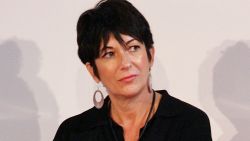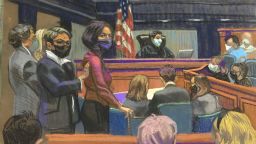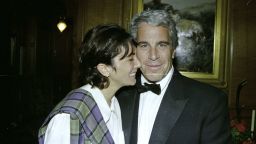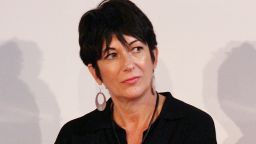Ghislaine Maxwell could be headed to federal prison for the rest of her life.
Maxwell, 60, faces up to 65 years in prison after she was found guilty Wednesday on five federal charges, including sex trafficking of a minor.
Maxwell’s attorneys said they plan to appeal.
US District Judge Alison Nathan has yet to schedule a sentencing hearing.
Meanwhile, legal experts say prosecutors could consider continuing their work investigating the crimes of the British socialite and the late convicted pedophile Jeffrey Epstein to determine whether others should be charged.
Prosecutors may seek a deal with Maxwell before sentencing, said Joey Jackson, a CNN legal analyst and criminal defense attorney.
“I think prosecutors – if they’re looking to go down the route of potentially holding other people accountable – will now say, ‘Now that you’re guilty, perhaps you can speak to us now, and to the extent that you cooperate, maybe we can work out some kind of arrangement where it’s not as stiff for you in jail,’” Jackson told CNN’s Jake Tapper.
Because Maxwell has no prior criminal history, she might not get the maximum sentence anyway – though the egregiousness of the crimes will lead to “significant time” behind bars, he added.
This was not a two-person operation, and others should be investigated, said CNN legal analyst Elie Honig, a former prosecutor in the Southern District of New York, where Maxwell was tried. He pointed to civil lawsuits that allege others are linked to Maxwell’s and Epstein’s abuse.
“I think prosecutors have a real obligation to dig all the way down to the bottom and bring anyone else who may have been part of this to justice,” he said.
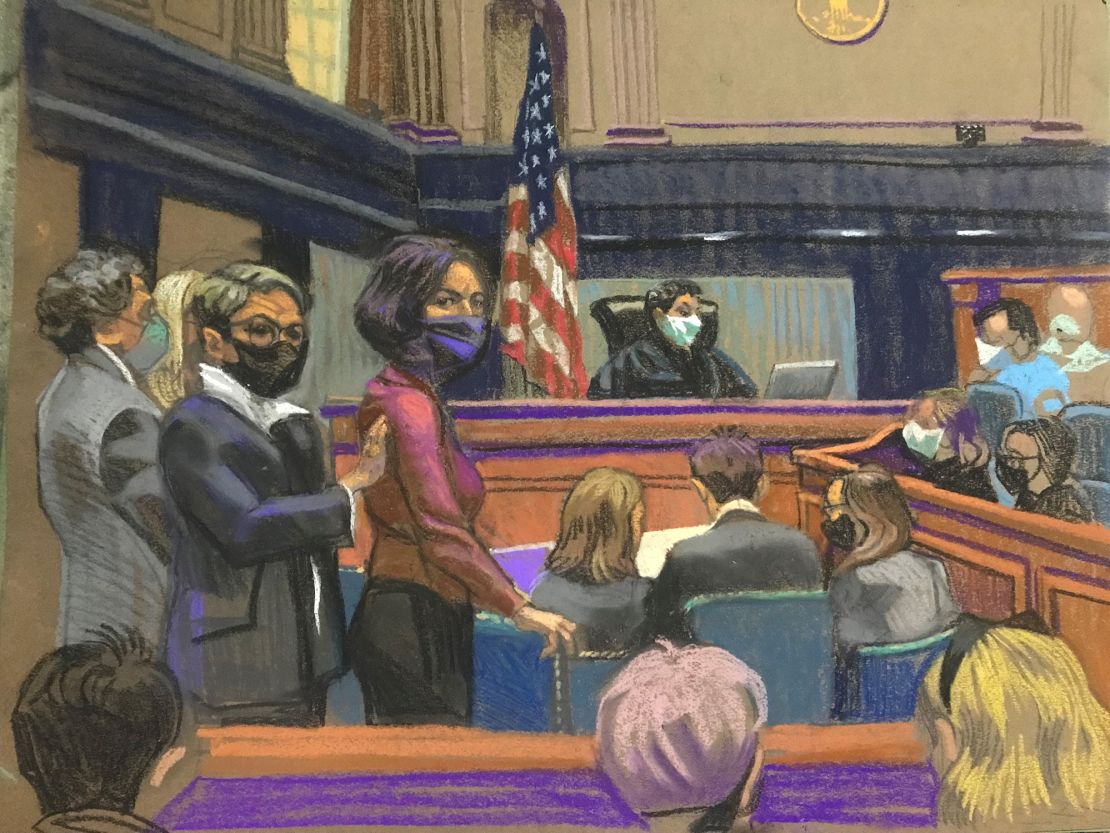
It is rare for US attorneys in that jurisdiction to try to get someone who has already been tried and convicted to cooperate, Honig said. But if Maxwell can deliver important cases against important people, that could lead to a deal, he said.
One of those rare offers involved a client who had been convicted of a crime and was told there was a way for him to stay out of prison, said Jackson, who didn’t get into the details.
“So, I don’t think that this story may be over yet,” he said. “The same deal may be given to Maxwell.”
Prosecution praises victims who testified at trial
In addition to the sex trafficking of a minor charge, Maxwell was found guilty of transporting a minor with the intent to engage in criminal sexual activity and three related counts of conspiracy.
She was acquitted on the charge of enticing a minor to travel to engage in illegal sex acts.
Prosecutors argued Maxwell and Epstein conspired to set up a scheme to lure young girls into sexual relationships with Epstein from 1994 to 2004 in New York, Florida, New Mexico and the US Virgin Islands.

The US attorney for the Southern District of New York praised the prosecutors in his office for their work and thanked the four women who testified during the trial that Epstein abused them when they were girls and that Maxwell facilitated the abuse and sometimes participated in it.
“The road to justice has been far too long. But, today, justice has been done,” US Attorney Damian Williams said in a statement. “I want to commend the bravery of the girls – now grown women – who stepped out of the shadows and into the courtroom. Their courage and willingness to face their abuser made this case, and today’s result, possible.”
Maxwell’s lawyers are working on an appeal, attorney Bobbi Sternheim said.
“We firmly believe in Ghislaine’s innocence. Obviously, we are very disappointed with the verdict,” Sternheim said, adding her team believes Maxwell still will be vindicated.
Jury deliberations stretched for 40 hours
The jury of six women and six men deliberated for about 40 hours across parts of six days.
The long hours of deliberation and the number of questions from the jury showed that the 12-member panel was being careful, Honig said.
“It shows me the jury didn’t just sweep the table and say all guilty, or all not guilty,” he said. “And when this case is on appeal … as a prosecutor, you want to be able to say to the Court of Appeals look, the jury was really careful here, they were really selective about what they did.”
The jury did what attorneys want them to do: take their time and be meticulous, he said.
Maxwell’s defense team in closing arguments said she was a “scapegoat” for Epstein’s actions and attacked the memories and motivations of the accusers.
But the evidence contradicted claims Maxwell was a scapegoat, Honig said.
“Juries are told, ‘You can use common sense, folks. You can use the good everyday judgment you use out there in the real world,’” he said. “And I think it’s just absolutely unbelievable and implausible that Ghislaine Maxwell herself was somehow a victim or somehow didn’t realize what was going on.”
The prosecution called 24 witnesses, while the defense called nine. Maxwell declined to testify.
Annie Farmer, one of four accusers who testified, said Wednesday she hopes the verdicts bring solace to the victims.
“I am so relieved and grateful that the jury recognized the pattern of predatory behavior that Maxwell engaged in for years and found her guilty of these crimes,” she said. “She has caused hurt to many more women than the few of us who had the chance to testify in the courtroom.”

